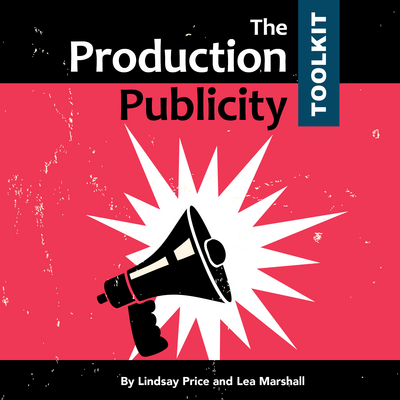Agatha Rex by Lindsay Price is a bold high school take on Antigone - packed with heart, conflict, and a powerhouse ensemble. One girl. One stand. One huge risk. *NEW COMPETITION VERSION AVAILABLE!*
10 Ways to Publicize Your Show
So, you’ve decided to produce a play at your school this year. You’ve considered all the possibilities of shows to produce and have made a great selection. You have a vision for the show and have all your dates and plans in place. You’ve held auditions and have a great cast in place. Rehearsals have just started. Things are going great! But now we’ve got another item to add to your director’s (never-ending) to-do list: publicity. You need to sell those tickets and get audience members to see your show!
As the teacher, you might be responsible for acting as producer on top of your other theatrical duties. If at all possible, save yourself some sanity and add a producer to your team, or at the very least, an assistant producer. This could be a senior student (a great opportunity for a student with solid leadership skills), a teaching colleague, a student teacher, or a parent volunteer. Having that extra person will really help.
Be sure to encourage all members of the cast and crew to join in with publicity. They are your best and brightest advocates of the show, and as the saying goes, many hands make light work. The more people you have spreading the word, the better.
You should start publicizing your show as early as possible. So, without further ado, here are ten ways you and your team can publicize your show.
1. Get people talking.
First and foremost—word of mouth— tell everyone you know. Word of mouth is the cheapest and easiest way to let everyone know that you are doing a show and that you’re excited about it.
2. Poster your community.
Get your cast and crew together to do a poster/flyer blitz and paper the city. The standard poster size is 11×17 inches, but have a variety of sizes to put in unique spaces. It’s also a good idea to create postcard-sized or business card-sized flyers or handbills, so people can tuck them into a purse or pocket. You could even create a unique giveaway like bookmarks to publicize your show, especially if your show is based on a book.
Remember to make sure to get permission first, if you’re putting posters in certain places like businesses or public areas. Some places require you to get materials approved before posting them. You don’t want your posters and handbills to end up in the garbage.
3. Use social media.
Do a social media blitz (school website, Facebook, Twitter, Instagram, YouTube) and create your #ShowHashtag. Take photos during rehearsals. Share behind-the-scenes “sneak peeks” of costumes and sets. Start a show blog and have cast and crew members write weekly blog posts and updates. Create a YouTube channel to show rehearsal clips and interviews with cast and crew members. You could also create a trailer to advertise your show–just be aware of any potential copyright issues if you’re using music in the video.
4. Use traditional media.
Don’t forget about traditional media (newspaper, radio, television)—approach anyone and everyone you can think of. You could also purchase ad space in local newspapers/online media, or trade ad space with other local productions in their playbills.
5. Be a walking advertisement.
Order clothing with your show’s logo (t-shirts, hoodies, caps) and get your entire cast to wear them everywhere. These items also make great mementos after the show closes. You could sell these items during the run of the show.
6. Hold a contest.
Organize a contest or giveaway for patrons like free tickets to opening night or a piece of show merch, for answering trivia, uploading photos, using the #ShowHashtag, or for sharing posts online.
7. Create cast incentives.
Offer an incentive to your cast and crew members–whoever sells the most advance tickets for the show wins a prize.
8. Get into the community.
Get involved in local community events devoted to arts and culture. You could set up a table and give out flyers and smiles! If your show happens to rehearse near a major holiday, get involved in your local holiday parade, either walking the parade in costume or even creating a float. You could also organize a flash mob at a community events–this is especially useful for advertising musicals.
9. Ticket rates.
Create a special group rate for tickets and encourage groups to buy tickets in advance. Call groups in your area and arrange for them to come–try local schools, senior residences, Girl Guide/Boy Scout groups, or youth groups. Perhaps someone in your cast has a connection to a group that might like to come. Use those resources.
10. Explore your subject matter.
If your show addresses current issues, you could hold a fundraiser or awareness drive, or donate a portion of ticket sales to a favourite charity. You could also hold post-show talkbacks with the cast and crew to speak to the audience about these issues. These are all great selling points to include in your publicity, and you’re giving back at the same time.
What are some creative methods you’ve used to publicize your shows? We’d love to hear about them.
Related Articles
The Production Publicity Toolkit
by Lindsay Price & Lea Marshall
In the school market, you rarely have a marketing budget. But you have a lot of resources for publicity. You have social media, your students, community outreach, and more. The Production Publicity Toolkit can help you create the awareness and attention your production deserves.




